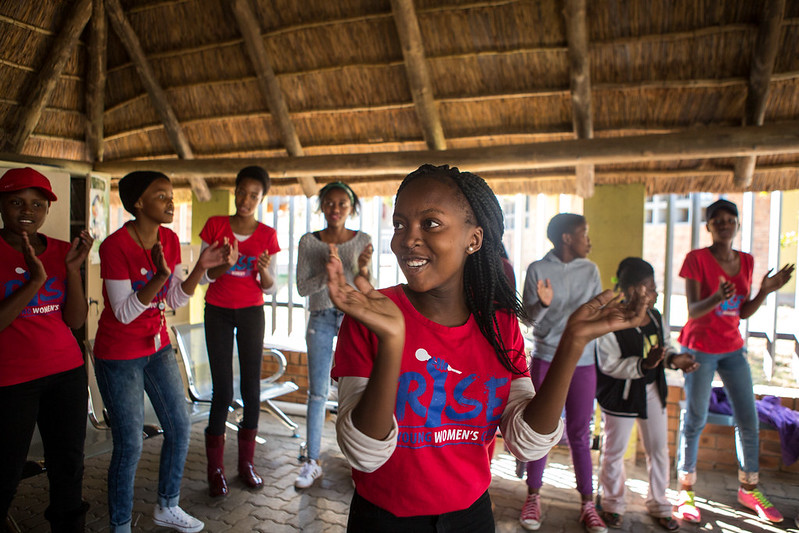Gender Equality Improves in Sub-Saharan Africa
 Gender equality in Sub-Saharan Africa improves as countries take positive strides to increase women’s involvement in their national economies. Gabon and Côte d’Ivoire are making significant strides in achieving scores above 90 on the World Bank’s Women, Business and the Law index.
Gender equality in Sub-Saharan Africa improves as countries take positive strides to increase women’s involvement in their national economies. Gabon and Côte d’Ivoire are making significant strides in achieving scores above 90 on the World Bank’s Women, Business and the Law index.
Poverty and Gender Equality in Sub-Saharan Africa
Promoting global gender equality is one of the 17 Sustainable Development Goals (SDGs) set by the United Nations in 2015. The goal is to achieve gender equality by 2030. UN Women conducted a new data analysis that spotlights gender-based discrimination across all 17 SDGs and then summarized where Sub-Saharan Africa stands in comparison globally.
The first Sustainable Development Goal is no poverty. The global average is that 122 women in the 24-34 year-old cohort live in extreme poverty for every 100 men of the same cohort. In Sub-Saharan Africa, the average is 127 women living in extreme poverty for every 100 men in the same cohort. The fifth Sustainable Development Goal is about gender equality and reducing the barriers for women and girls. Globally, women do 2.6 times the unpaid domestic work compared to their male counterparts. In the three countries that UN Women looked at — Ethiopia, Mali and Mauritius — women, on average, spend 19% to 22% of their day doing unpaid domestic work. Meanwhile, men spend approximately 2.5% to 8.7% of the day on unpaid domestic labor in the same three countries.
The global Multidimensional Poverty Index (MPI) comprehensively measures how poor a population is based on a summary figure of the three dimensions of poverty — health, education and living standards. The most recent survey year for Gabon was 2012, and based on the data collected, 15.6% of the population is multidimensionally poor. The most recent survey year for Côte d’Ivoire was 2016 when 46.1% of the population was multidimensionally poor.
Reforms in Gabon
Gabon adopted new laws in 2021 that revised the country’s 1972 Civil Code. The Civil Code had previously been rooted in French colonial labor laws that imposed constraints on the jobs and sectors women worked in, the hours and the pay for their labor. As part of the 2021 revisions to reduce these constraints, women in Gabon could:
- Be heads of household.
- Own and manage property.
- Choose where they live.
- Have independent bank accounts not connected to their husbands.
- Have access to more jobs that were previously unavailable to women.
Additionally, reforms to the Criminal Code in 2021 protected Gabonese women from gender-based discrimination when accessing credit.
In May 2023, the First Lady of Gabon, Sylvia Bongo Ondimba, patronized a three-day event promoting women’s rights and empowering them during the Conference of Ministers in Gender and the Advancement of Women. The event highlighted how vital the inclusion of women is when it comes to political and peace processes. At the end of the event, the eleven countries present adopted the “Declaration on the Common Agenda on priority actions for the promotion of women’s rights and their empowerment.”
Reforms in Côte d’Ivoire
The results of the Program for the Analysis of Educational Systems were published in 2021. This report revealed that only 41% of children could read above the satisfactory level during their final year, and only 17% showed satisfactory proficiency in math.
Côte d’Ivoire has transformed its education system in response to the report. During the 2023/2024 school year, Côte d’Ivoire began the National Early Learning Program, which uses cognitive science and neuropsychology to understand how children read during their early schooling years. In addition to reforms on how children learn, Côte d’Ivoire is also reducing gender inequality and stereotypes in the educational system through:
- Training teachers.
- Increasing female representation in school leadership.
- Promoting safety.
- Preventing violence.
- A revised curriculum.
Concluding Remarks
The reforms that Gabon and Côte d’Ivoire have taken so far are essential steps in the 2030 Agenda to promote gender equality and reduce the barriers that women face. These steps help women gain greater access to rights at all levels — from education to economic systems and political processes. Gabon and Côte d’Ivoire are leading the charge of increasing gender equality in Sub-Saharan Africa.
– Komalpreet Kaur
Photo: Flickr
